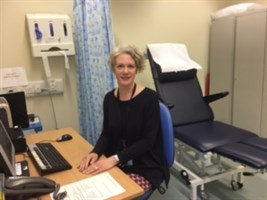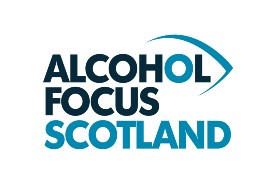Campaigns & Policy
- Minimum pricing
- Availability and licensing
- Alcohol marketing
- Improved labelling
- Harm to others
- Supporting local action
- Personal stories
- Scottish policy
- International policy
- Involvement
Alcohol strategy
Our recommendations for the next Scottish Government alcohol strategy.
Dr Andrea Williamson
I work as a GP in a health service in Glasgow that is for people experiencing homelessness. I also work in a community addiction team and at Glasgow Medical School teaching and doing research.

I am involved in GPs at the Deep End, a collective of GPs who serve the 100 most socio-economically deprived communities in Scotland and who seek to improve health care in these areas.
Problem alcohol use is a big issue for the patients I work with and in Deep End areas generally. This is partly because high alcohol use is such a part of life in Scotland. It is also increasingly being recognised that for a significant minority of patients alcohol use is a way of escaping and coping with difficult memories and emotions.
What people drink is mostly driven by cost and to some degree the types of drinks that keep physical side effects to a minimum. So some people will move from vodka to beer if they are experiencing a lot of stomach problems or when they are trying to reduce their drinking quantity (more volume less alcohol).
My patients drink a wide range of alcoholic drinks - strong lagers, cheap wines and ciders are the products commonly mentioned and sometimes vodka or cheap whisky.
Alcohol causes a whole range of physical health problems for the patients I work with from the minor inconvenience such as heartburn to the major impact on health in the long term such as alcohol-related brain damage or premature death. Untangling the mental health effects from the reasons why people struggle with problem use in the first place is often difficult to do.
In homelessness a significant minority have been tipped into homelessness because of offending behaviour or relationship breakdown related to alcohol dependence and some patients become alcohol dependent when they become homeless as they seek to find ways to cope with stressful circumstances.
Premature death from alcohol has a major impact in Deep End communities as families lose sons and daughters, children lose parents.
Problem alcohol use causes devastation for families and all of those around them. Many of the patients I work with have themselves had difficult childhood experiences because of alcohol dependency in their parent or grandparent and are adults living with the psychological consequences of that adversity in adulthood. It is an intergenerational cycle of harm that needs to stop!
Action by Deep End GPs
As GPs we work will all patients’ needs, whether that be physical, mental, or social, so we don’t make the distinction between mental health and addictions - importantly nor do patients! We have been working in various ways to encourage services to view it in that way too and ensure that help with alcohol is also focussed on recovery from the issues that have triggered problem alcohol use in the first place.
We have voiced our support for minimum unit pricing on alcohol which is an important public health strategy to reduce harm.
We also undertook a pilot of bringing specialist alcohol nurses into work alongside GPs in Deep End practices. Read more about this pilot (pdf)
How can we prevent and reduce alcohol harm in Scotland?
Some of what is required to reduce alcohol harm in Scotland is about culture change right across the board in terms of the acceptability of consumption, availability of provision (cost and outlets) and the role that alcohol has played in family and cultural life over many generations.
An important aspect of this is how we as a society and individuals are enabled to be psychologically healthy and the role that alcohol (and other substance use) plays in that.
It is self-evident to someone like me that if all children grew up in homes where their families did not have money worries and were supported to achieve really well functioning positive mental health then the majority of problem alcohol use would vanish in a generation. That’s a lofty aspiration - but my hope is that as the evidence base for that gathers momentum it will be realised.
What is more, within the give of people doing jobs like mine is to be in a health service that does encourage people to seek help and to recover. For too long we have provided services without really trying to understand why some people make use of them yet some people - often those with the highest needs - don’t or don’t in a way that will help effectively. This project is seeking to change that.
